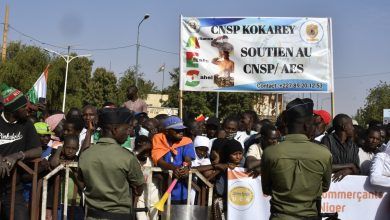
Nigeria’s Minister of Finance and Coordinating Minister of the Economy Wale Edun, has revealed that the Nigerian National Petroleum Company (NNPC) Limited has initiated the process to repay the $6 billion debt owed to suppliers.
This announcement came during Edun’s engagement with investors in Washington, DC, held alongside the 2024 annual meetings of the International Monetary Fund (IMF) and the World Bank.
Edun addressed concerns regarding the supply arrears that NNPC owes to refined petrol suppliers, clarifying the implications of the petrol subsidy removal implemented earlier this year. He noted, “While the subsidy was removed on May 29, 2023, the reality is that a foreign exchange subsidy emerged, mainly borne by NNPC.”
He expressed optimism about NNPC’s financial strategy, stating, “They have a route to paying down their payables and I’m sure that in no time at all, they will start. From what I understand, they have even commenced the process.”
On September 1, NNPC publicly acknowledged its $6 billion debt to petrol suppliers, attributing financial strain to the costs associated with petrol supply. Olufemi Soneye, the company’s Chief Corporate Communications Officer, highlighted that these financial challenges are impacting NNPC’s ability to maintain consistent petrol supply.
In addition to the debt issue, Edun discussed the new market-based pricing mechanisms implemented by the Central Bank of Nigeria (CBN) for foreign exchange and petroleum products. He stated, “We have moved to a willing buyer, willing seller pricing mechanism for FX, which now applies to petrol as well.”
He emphasized that local refiners are now able to purchase crude oil in naira, refine it, and sell it back in naira, marking a significant shift in the market dynamics. “It’s the first time, in maybe 40 years, that we have had this,” Edun noted, praising the determination and skill involved in this transition.
The minister reiterated the government’s commitment to maintaining market pricing for petrol, which he believes will help retain significant financial resources within the country. “The idea is to stop the wasteful outflow of 5 percent of GDP to benefit a few and instead redirect these funds to develop and modernize the Nigerian economy.”
To further support deregulation in the downstream sector, the federal government has also introduced a new direct purchase model for petrol lifting as of October 11. This model allows oil marketers to buy petroleum products directly from local producers, such as the Dangote refinery, bypassing NNPC.
These measures collectively aim to stabilize Nigeria’s oil sector and enhance its economic prospects, fostering a more sustainable financial environment for both the NNPC and the broader economy.





